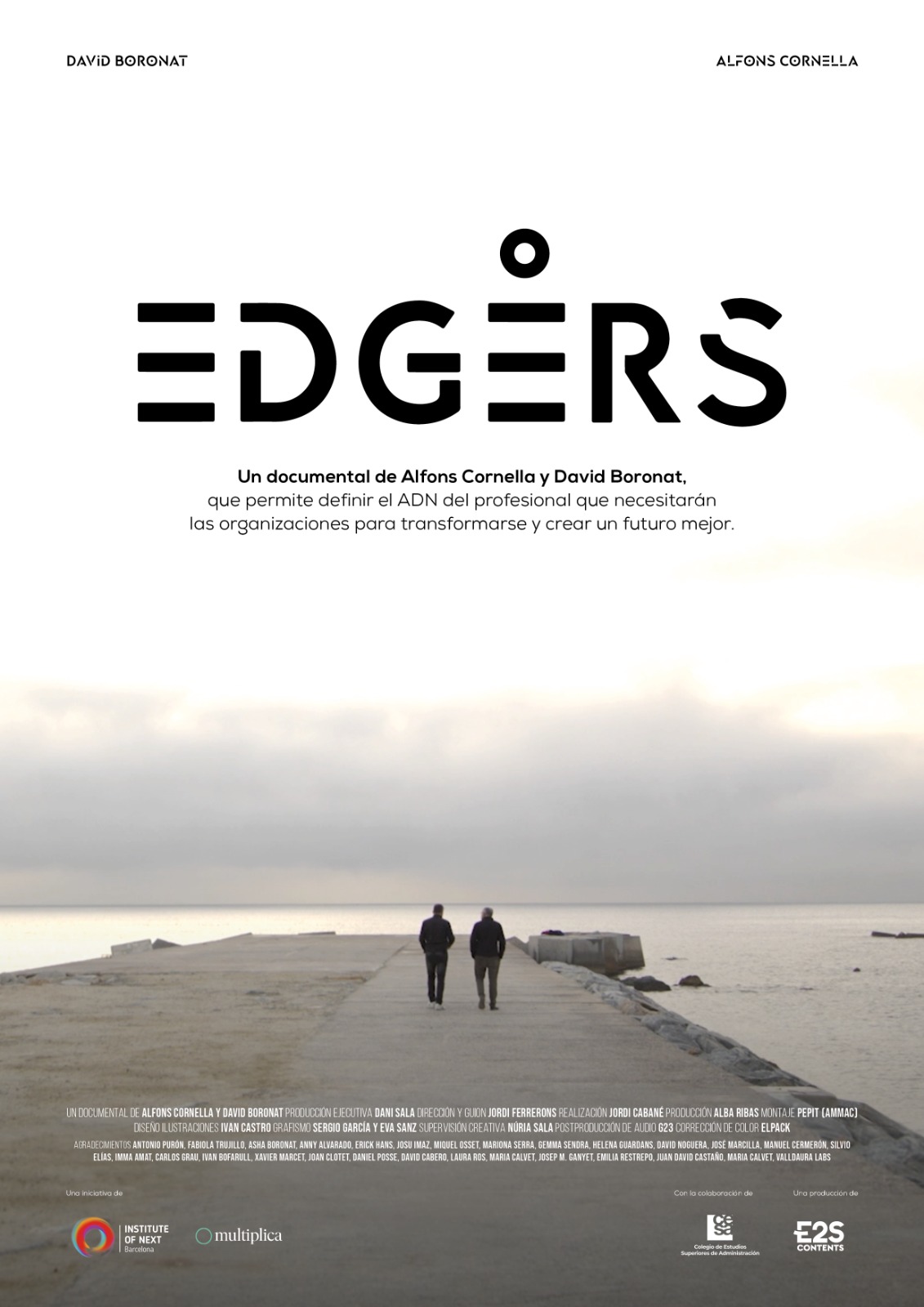.jpg)
Soy fundador de Infonomia y del Institute of Next, empresas de servicios para repensar el futuro de las empresas y las organizaciones, con un enfoque especial en la innovación. Exploro constantemente los ecosistemas de innovación internacionales, y difundo lo que observo a través de conferencias y talleres.
He escrito más de 40 libros, así como cientos de artículos breves sobre innovación, negocios y tecnología, desde la perspectiva de la transformación de las organizaciones. Mis últimos libros son “Curiosidad: felicidad y éxito”, “Cómo innovar sin ser Google”, un manual de innovación elaborado a partir de lo aprendido en 20 años de práctica profesional, “Educar humanos en un mundo de máquinas inteligentes”, una propuesta de ideas y reflexiones sobre la nueva educación que necesita nuestra sociedad, y “Cómo comer cangrejo y no morir en el intento” (con Mònica Alonso) sobre la transformación de China en una potencia en innovación.
He sido consultor de muchas empresas españolas, y ha dirigido más de 100 proyectos de innovación en todo tipo organizaciones, en especial en el sector privado.
Soy licenciado en Física Teórica por la Universitat de Barcelona, Master of Science en Information Resources Management por la Syracuse University en New York, y tengo un postgrado en Alta Dirección de Empresas por ESADE Business School.

Lo hago a través del proyecto Edgers, facilitando a los equipos directivos tener un debate práctico sobre cómo alinear su propósito con los cambios del entorno, impulsados por la tecnología y el mercado. También formo a equipos de profesionales generando en ellos una actitud de transformación atrevida, para que hagan propuestas para responder a las nuevas oportunidades de negocio.
Puedes saber más sobre el proyecto Edgers a través de nuestro documental:
También puedes leer nuestro artículo-manifiesto EDGER
Manifiesto EdgersHemos entrevistado a profesionales Edger en empresas muy diversas:
Ver videos aquíY puedes aprender cada día sobre los mejores edgers del mundo en nuestro espacio en Linkedin


Una presentación de 2 horas con montones de ejemplos de edgers que están cambiando el mundo a mejor. Desde una perspectiva seria, optimista y comprometida.
Ver versión 2025Puedes ver un resumen en texto de la edición 2024 aquí:
Ver documento.jpg)

Difundo maneras de hacerlo a través de mi libro sobre curiosidad y de una colección de 50 videos breves sobre la curiosidad, así como mediante conferencias y talleres.
También he escrito un cuento infantil para estimular la curiosidad disponible en 35 lenguas:
Ver "Ona la Curiosona"

.jpeg)
Doy habitualmente conferencias y talleres sobre innovación.
He escrito manuales sobre cómo llevar adelante un proyecto de innovación.

Un resumen de las lecciones aprendidas:
Ver resumen.jpg)

He propuesto el término “infoxicación”. Para designar la sobrecarga de información que aflige a nuestra sociedad
Ver resumen de Infonomia